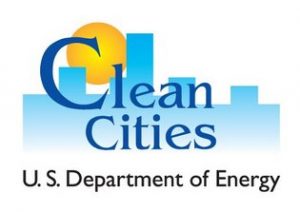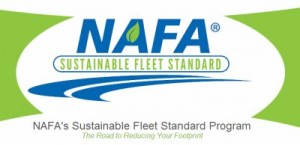by Jon LeSage, editor and publisher, Green Auto Market
Here’s my take on the 10 most significant and interesting occurrences during the past week…….
 The US Dept. of Energy’s Clean Cities has issued several research resources for stakeholders in the past week. The Clean Cities 2015 Vehicle Buyer’s Guide offers vehicle selection, pricing, infrastructure, and emissions information on a wide selection of alternative fuel vehicles. Categories include propane, compressed natural gas, biodiesel, plug-in electric, plug-in hybrid electric, hybrid electric, and ethanol flex-fuel. Clean Cities also said that it’s moving forward on its request for information (RFI) project announced in November on purchasing and procurement for bulk vehicle orders. The RFI is soliciting feedback from industry, academia, research laboratories, government agencies, and other stakeholders on issues related to purchasing/procurement processes designed to coordinate and consolidate bulk alternative fuel vehicle, advanced vehicle orders, and vehicle subsystems. Responses are due no later than 5:00 pm eastern time on March 13, 2015. This announcement was coordinated with a public meeting for Clean Cities stakeholders to collect input in a new Clean Cities five-year strategic plan. Clean Cities encourages stakeholders to continue to give written comments through its Strategic Planning Meeting website until March 13.
The US Dept. of Energy’s Clean Cities has issued several research resources for stakeholders in the past week. The Clean Cities 2015 Vehicle Buyer’s Guide offers vehicle selection, pricing, infrastructure, and emissions information on a wide selection of alternative fuel vehicles. Categories include propane, compressed natural gas, biodiesel, plug-in electric, plug-in hybrid electric, hybrid electric, and ethanol flex-fuel. Clean Cities also said that it’s moving forward on its request for information (RFI) project announced in November on purchasing and procurement for bulk vehicle orders. The RFI is soliciting feedback from industry, academia, research laboratories, government agencies, and other stakeholders on issues related to purchasing/procurement processes designed to coordinate and consolidate bulk alternative fuel vehicle, advanced vehicle orders, and vehicle subsystems. Responses are due no later than 5:00 pm eastern time on March 13, 2015. This announcement was coordinated with a public meeting for Clean Cities stakeholders to collect input in a new Clean Cities five-year strategic plan. Clean Cities encourages stakeholders to continue to give written comments through its Strategic Planning Meeting website until March 13.- The Tesla Model S and Toyota Prius take best of awards from Consumer Reports. For the second year in a row, the Model S has taken the “best overall” category for its “innovation, magnificence, and sheer technological arrogance.” The testing team likes the fact that Tesla’s over-the-air software updates keep the 2013 model up to date with many of the same features as the new models. The Toyota Prius took the “green car” category again, which has been the case consecutively since 2004. Testers haven’t been that impressed with ride comfort, cornering, and interior, but the affordability, fuel economy, packaging and “blue-chip reliability” make it the “perfect economical transportation solution.” Rating indicators for all Consumer Reports categories are based on overall road-test performance, reliability, and safety.
- AltCar has announced dates for its two 2015 events. For the Northern California event, the City of Oakland AltCar Conference & Expo will be held May 28. The 10th anniversary of the City of Santa Monica’s AltCar Expo will take place on Sept. 18-19. For participation, you can contact Platia Productions at (310) 390-2930, ext. 3.
- Toyota started production of Mirai fuel cell sedan at its Motomachi Plant in Toyota City, Japan. The fuel cell car can travel 400 miles on a fueling and has been very important in Toyota’s green vehicle strategy; however, the production numbers are limited to 700 units this year, 2,000 in 2016, and 3,000 in 2017.
- Daimler joins other automakers selling in the European market by implementing more material cost efficiencies to meet stringent European Union emissions targets. Daimler Chief Financial Officer Bodo Uebber says that in 2014, the automaker offset the burdens from the variable cost for its carbon reducing measures with material cost efficiencies such as sharing more commonality among its different car lines. Uebber expects to do the same this year through at least 2017.
- The Propane Education & Research Council (PERC) is funding $600,000 to Icom North America to support development of its propane autogas technology in the Ford 3.5L EcoBoost engine. That should assist Icom receiving both US Environmental Protection Agency and California Air Resources Board certifications for the 3.5L EcoBoost platform. Icom’s JTGhp direct-injection system can be applied to the Ford F-150, Explorer, and Taurus vehicle platforms. PERC also announced last week that it will be displaying at the NTEA Work Truck Show in Indianapolis. Fleet managers are invited to interact with PERC’s dimensional displays for calculating lifetime operating costs, and seeing cost savings that comes from using propane autogas.
- Volvo Cars is joining the autonomous vehicle test driving movement by placing 100 self-driving cars on Gothenburg, Sweden streets by 2017. Local residents will be using these autonomous Volvo XC90 crossover test vehicles commuting to work on a controlled 31-mile route. That test is expected to run through the spring of 2019 and will use sensors, cloud-based positioning systems, intelligent braking, and steering technologies through a new Volvo autopilot system.
- Texas state grants had pretty good return on investment with grants issued to natural gas vehicles (NGVs), according to a study by the University of Texas San Antonio’s Institute for Economic Development. Three state grants, totaling $52.9 million, supported construction of new natural gas fueling stations and the adoption of NGVs. That generated $128 million in economic impact, $52.9 million in gross state product, and supported 927 full-time jobs in 2014. The Texas Commission on Environmental Quality administered the three grants that went out to the Clean Transportation Triangle, the Alternative Fueling Facilities Program, and the Texas Natural Gas Vehicle Program.
- As biofuel supporters wait for the US Environmental Protection Agency to get around to announcing its 2014 volume standards, another action was taken in Washington. A bill introduced last week by Senators Pat Toomey (R-Pa.) and Dianne Feinstein (D-Calif.) would repeal the corn ethanol mandate in the Renewable Fuel Standard (RFS). Feinstein is especially concerned about corn prices increasing if that mandate continues. They’re misunderstanding the facts, according to Bob Dinneen, president of the Renewable Fuels Association. “Corn is less expensive today than when the RFS was passed,” Dinneen said.
- Solar power will see substantial growth in 2015, according to a new study by GTM Research. Solar installations will grow in 75% of US states, with incremental growth in Arizona and Massachusetts but significant growth in Georgia and Utah.

